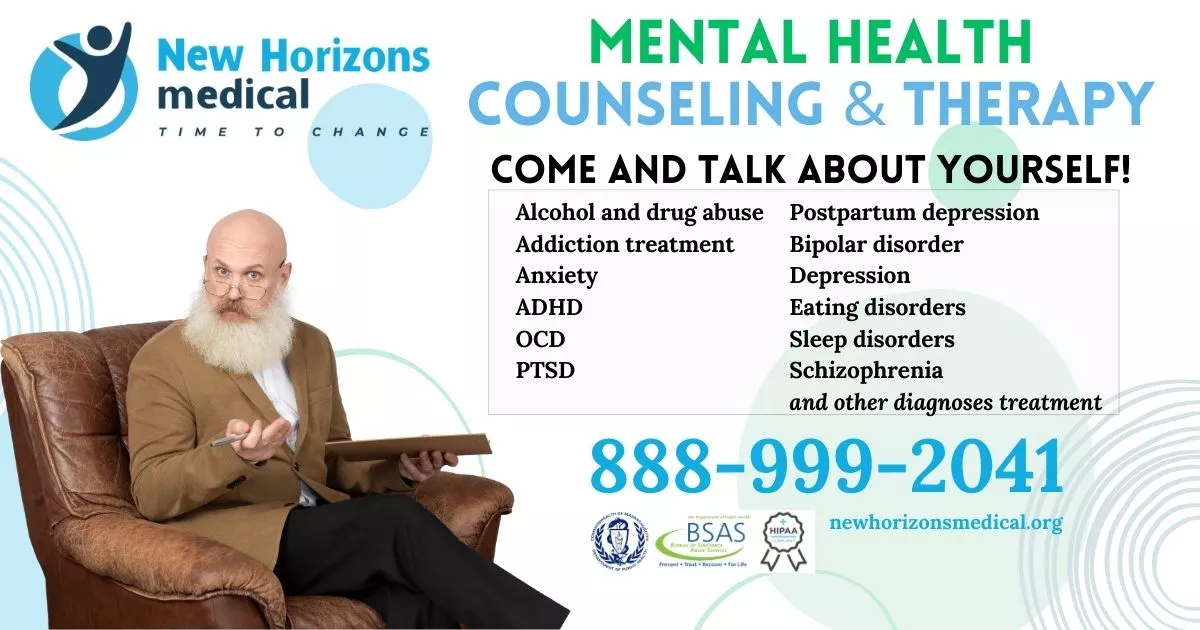The Importance of Mental Health And Wellness: a Deep Dive Into Therapy, Therapy, and Their Benefits
Mental health and wellness significantly shapes specific health, affecting ideas, emotions, and actions. Counseling and treatment act as necessary opportunities for recovery and individual development. They offer structured support, aiding individuals navigate life's challenges. Several stay not aware of the specific types of treatment offered and their unique advantages. Comprehending these facets is necessary for any person thinking about professional mental health support. What follows might brighten courses to strength and gratification that numerous overlook.
Recognizing Mental Wellness and Its Influence
Psychological health is commonly forgotten, it plays a crucial function in total well-being and day-to-day functioning - Marriage Counselling. It incorporates psychological, mental, and social aspects that influence exactly how individuals think, really feel, and act. An individual's mental health straight affects their capacity to deal with tension, relate to others, and make choices. Poor psychological wellness can cause different issues, consisting of anxiety, anxiety, and difficulty in keeping relationships, every one of which can impede specialist and personal growth.Furthermore, mental health has significant implications for physical health. Chronic tension and untreated mental problems can contribute to numerous physical disorders, such as cardiovascular disease and weakened immune reactions. On the other hand, positive mental health and wellness cultivates durability, making it possible for individuals to handle life's challenges efficiently. Recognizing psychological health and wellness's value is important for cultivating helpful atmospheres that advertise emotional health, thereby improving the lifestyle for people and neighborhoods alike
The Different Types of Therapy and Therapy
In the domain name of mental health, different therapy and treatment types deal with varied demands. Private therapy methods focus on individual concerns through one-on-one sessions, while group therapy characteristics foster shared experiences and assistance amongst participants. Understanding these techniques is important for selecting the appropriate intervention for different challenges.
Specific Counseling Techniques
Numerous individual counseling techniques exist, each created to resolve specific psychological health and wellness problems and satisfy differing customer requirements. Cognitive Behavioral Therapy (CBT) concentrates on identifying and changing unfavorable idea patterns, while Psychodynamic Therapy checks out previous experiences and subconscious procedures. Humanistic Treatment highlights individual growth and self-actualization, promoting an encouraging setting. Interpersonal Therapy (IPT) targets partnership concerns and communication patterns to improve psychological health. In addition, Approval and Dedication Therapy (ACT) urges clients to accept their thoughts and feelings while committing to individual values. Each method offers one-of-a-kind strategies and ideologies, permitting professionals to tailor their methods to the person, therefore improving the healing experience and advertising mental wellness healing.
Group Treatment Dynamics
Group therapy characteristics include various restorative techniques that leverage the power of interpersonal partnerships and shared experiences. This type of treatment often consists of varied groups, promoting a safe atmosphere for participants to express thoughts and feelings. Secret sorts of team treatment include support system, which give emotional support; process-oriented teams, concentrating on interpersonal communications; and psychoeducational teams, focused on presenting understanding about mental health concerns. The dynamics within these groups can enhance self-awareness, as members commonly review their behaviors in relationship to others. Furthermore, group therapy fosters a sense of belonging, minimizing sensations of seclusion. Via shared stories and cumulative problem-solving, participants can establish dealing methods and obtain insights, inevitably adding to individual development and healing.
The Role of Counseling in Mental Health
Counseling plays an important function in mental wellness by offering various methods customized to individual needs. These approaches give professional assistance that can cause considerable enhancements in psychological well-being. Comprehending the various kinds of therapy can help individuals make notified choices about their mental wellness treatment.

Kinds Of Therapy Strategies
While various therapy approaches exist, each offers distinct techniques and insights into psychological health and wellness therapy - Couples Therapy. Amongst one of the most noticeable are cognitive-behavioral therapy (CBT), which concentrates on altering negative thought patterns; psychodynamic therapy, which discovers subconscious processes and childhood years experiences; and humanistic methods, emphasizing personal growth and self-actualization. Furthermore, solution-focused short treatment focuses on locating remedies in the present rather than delving right into problems. Team therapy promotes community and shared experiences, while household therapy addresses relational dynamics within domestic frameworks. Each approach provides to various requirements, aligning with private preferences, concerns, and healing goals. Comprehending these approaches helps clients make informed options about their mental health trip and advertises reliable treatment tailored to their distinct scenarios
Benefits of Professional Assistance
Numerous individuals take advantage of specialist guidance in handling their psychological health and wellness difficulties. Therapy provides a secure area for clients to discover their ideas and sensations without judgment. This restorative atmosphere cultivates self-awareness, enabling individuals to identify patterns in their habits and create much healthier coping techniques. Specialist support also supplies accessibility to evidence-based strategies that can ease signs of anxiousness, depression, and other psychological health issues. Therapists can help in establishing sensible objectives and use support in accomplishing them, improving total wellness. The joint connection in between counselor and client is essential, as it promotes liability and motivates individual development. Eventually, professional support plays a crucial function in steering psychological health and wellness journeys, resulting in enhanced psychological strength and life complete satisfaction.
Advantages of Treatment: Recovery and Growth

Exactly how to Choose the Right Therapist or Counselor
Exactly how can one browse the frequently frustrating process of choosing the ideal therapist or therapist? Recognizing personal demands is vital; people ought to consider their certain concerns, whether depression, stress and anxiety, or partnership challenges. It is useful to research study different healing methods, such important link as cognitive-behavioral therapy or psychodynamic treatment, to find an appropriate match.Next, possible customers must look for references from relied on sources or utilize online directories. It is important to assess therapists' credentials, including their education Visit This Link and learning, licensing, and areas of specialization. Setting up first examinations can assist gauge compatibility, allowing individuals to evaluate communication designs and personal comfort.Finally, logistical elements, such as location, availability, and charges, should also be taken into consideration. By attentively weighing these elements, one can make an educated decision, eventually cultivating a healing relationship that sustains mental health and wellness and individual growth.
Conquering Preconception: Welcoming Mental Wellness Support
While social mindsets toward psychological health and wellness have advanced, stigma still presents a considerable obstacle for many seeking support. This stigma frequently materializes as mistaken beliefs bordering mental disorder, leading people to really feel embarassment or fear regarding their struggles. Many individuals think twice to go after counseling or therapy because of bother with being evaluated or labeled. Overcoming this stigma is essential for promoting a supportive setting where people can freely review their psychological wellness needs.Communities and organizations play an essential duty in this improvement by advertising awareness and education concerning mental wellness concerns. Efforts that highlight individual stories can humanize these experiences, motivating others to look for help without anxiety. As acceptance grows, individuals might really feel much more equipped to accept mental wellness assistance, identifying it as an essential facet of general well-being. By dismantling preconception, society can cultivate a society of understanding, compassion, and aggressive mental healthcare.
Approaches for Maintaining Psychological Health Outside of Therapy
Although therapy gives beneficial assistance, maintaining psychological wellness outside of sessions is equally important. People can implement numerous approaches to maintain their mental health and wellness. Regular physical task plays a vital duty, as exercise promotes the release of endorphins, which boost mood. In addition, a well balanced diet abundant in nutrients can considerably impact emotional stability and power levels.Practicing mindfulness and meditation helps people take care of tension and develop greater self-awareness. Establishing a regular rest regimen is also essential, as top quality remainder is essential for cognitive function and emotional regulation.Engaging in social tasks cultivates connection and reduces feelings of isolation. Seeking leisure activities or rate of interests can give a creative electrical outlet and increase self-confidence. Ultimately, exercising and setting practical goals self-compassion permits individuals to grow durability. By integrating these strategies right into day-to-day live, individuals can successfully support their psychological well-being beyond therapy sessions.
Often Asked Questions

How Can I Tell if I Required Therapy?

Establishing the need for treatment usually includes identifying relentless feelings of sadness, stress and anxiety, or overwhelming stress. If everyday operating comes to be challenging or coping systems fall short, seeking expert assistance might be a useful progression.
What Should I Expect in My First Treatment Session?
In the first treatment session, individuals can expect an intro, their website conversation of their reasons for looking for assistance, and an overview of the therapist's approach, developing a structure for future conversations and establishing comfort in the therapeutic room.
Are Online Therapy Procedure as Effective as In-Person Ones?
Research shows that online treatment sessions can be as efficient as in-person ones. Variables such as the therapist's credentials, client involvement, and the healing partnership substantially affect end results, despite the medium made use of.
Can Therapy Assist With Connection Problems?
Treatment can help people in attending to relationship issues by giving devices for interaction, recognizing feelings, and dealing with conflicts. Mental Health Resources. It promotes much healthier characteristics and motivates personal development, ultimately fostering stronger, more fulfilling links between companions
How Much Time Does Therapy Normally Last?
Treatment duration differs substantially based on private requirements and objectives. Usually, sessions may last from a couple of weeks to numerous months, with some individuals involving in recurring treatment to address long-lasting worries and personal growth. Cognitive Behavior Treatment (CBT) focuses on recognizing and altering unfavorable thought patterns, while Psychodynamic Treatment discovers past experiences and unconscious procedures. Trick types of team treatment consist of support groups, which offer emotional support; process-oriented groups, concentrating on interpersonal communications; and psychoeducational groups, aimed at passing on knowledge about psychological wellness problems. Amongst the most noticeable are cognitive-behavioral therapy (CBT), which focuses on changing negative idea patterns; psychodynamic therapy, which checks out unconscious procedures and youth experiences; and humanistic approaches, highlighting personal growth and self-actualization. Group treatment fosters area and shared experiences, while household treatment addresses relational dynamics within domestic structures. It is helpful to research different therapeutic methods, such as cognitive-behavioral therapy or psychodynamic therapy, to find a suitable match.Next, potential customers must look for recommendations from relied on resources or utilize on the internet directories.